Last updated on October 5th, 2024 at 01:07 pm
Transcript Topic: Why is the TPM role is gaining prominence? For Newbies & TPM Veterans!
I am really excited about this one! It’s one of those things that I am very passionate about.
In this podcast we will talk about –
- Quantifying the number of opportunities for a TPM and what brought about this opportunity and growth for the TPM role
- The salary potential for TPMs
- The 3 fundamental areas of expertise
- How to your journey into agile and project management
- We will touch a little bit of tech stuff – but more on that later.
- And then we will finally go into the consistency of a Development team in a tech Organization and where the TPM fits in.
So let’s get started shall we .. why the TPM field is so attractive?
- Amazon, Google, Facebook, LinkedIn, Uber basically every tech company is beginning to understand and realize the value of a TPM and the necessity for having this role. Though I sometimes feel developers dont understand what TPMs do fully I am hoping that Time will change that.
- Just to give you a perspective of the number of openings –
- Seattle has 400 number of TPM jobs – https://www.indeed.com/jobs?q=technical+program+manager&l=Seattle%2C+WA
- California has 500 number of tpm jobs
- Amazon alone has 200 number of tpm roles
- Google 100
- Facebook 30
- Seattle has approximately 100k developers 2016. and my research shows 4k + tpms at the very least.
- Only grow from here on ..
- The normal ratio of devs to tpm’’s is 1 is to 8
- I believe the number of TPMs in seattle or any other tech center would double in the next couple of years.
You didn’t see this 4 or 5 years ago. As I mentioned in my previous podcast I dont see this as a fad. There are new TPM meetups coming up. The community is gearing up for a boom. It’s always good to get in when things are on and up and up you see. It’s important to notice the trends in the industry and take necessary action. In my opinion the TPM role is going to be one of the most important and up and coming roles in the tech industry. And when the big tech companies started trend eventually everybody follows.
Why this explosion ?
For this you need to primarily understand how Architecture has evolved over the last 20 years or so – from monolithic applications to service oriented architecture to now a more microservice oriented architecture. This means you have smaller feature teams who own building deploying managing and maintaining the feature end to end .. but this also bring to the forefront that each of these teams are interdependent of other feature teams to accomplish a feature they own.
Did that sound confusing ? Let’s take an example – Consider requesting an Uber ride –
You have one team which would own finding the users current location,
that feature team would then pass on your location to the team which searches for drivers near you
When you confirm the ride …another team responsible for sending a push message to 5- Drivers who are closest to your location
Then one driver accepts you as his/her next ride.
You see the now how each team has this imperative need to talk to another team ? Each of these feature teams need to be in constant communication with the other teams. This where a TPMs come in handy.
In general the microservice architecture came about for many reasons but one of the primary reasons is to enable the ability for teams to move faster. This kinda also fits into the whole agile Agile – iterative development model doesn’t it ?
Since there is a lot of focus on delivery and moving at a tremendous speed team are generally optimizing delivery. He or she is setting expectations with various other TPMs driving various initiatives within the organization and setting expectations on when his team will be able to deliver things.
If all the numbers of the quantity of opportunities did not change your mind you should also take a look at one of my recent blog post on salary analysis or simply google tpm salary analysis 2022, you will see that TPMs, in general, are making anywhere from $150k to $360k average tpm make 230k just to be clear thats total comp and not base salary. So you have a vast variety of TPM roles in the market, the number of openings has definitely gone up and the pay is great. What more of a reason do you need to move into the TPM field ?
I hope that peaked your interest ! So who is this role for? You might be a Dev, SDET, Product Manager, IT Project Manager, TAM, Pre-sales, solutions architect .. whatever you are. You can become a successful TPM. It’s not only the pay but it’s also in my opinion one of the most fulfilling jobs as you can really make a significant impact to the vision your organization is driving towards.
Just to give you some background I was in a sales role when I started my career and I did that for 3 years, after which I moved into QA then SDET and then PM and TPM. I’ll give you the details of that story on another podcast possibly. But the point im trying to make is that I did it and so can you ! Really its doable, it takes time and effort, but it’s do able. All that matters is that you are passionate about your end goal and you go at it with all you’ve got.
First it is important to understand that the TPM role requires expertise in 3 fundamental areas
- Technical Aspects
- Project / Program Management Management
- Understanding people and business
Understand that the more areas you are an expert at the higher in the value chain you get. To start out you need to be at an intermediate level at least in 3.
If you are already in the tech side of things like a Software developer or an SDET or a SDM then it would be good to go and do a couple of certifications like the PMP and the Scrum Certifications. I have written about certifications in general and there is a debate on how effective certifications are and if they are actually needed. But certification help in getting a foundation into project management and Agile.
The PMP is a good place to start its very well recognized as the gold standard for project management. PRINCE if you are in europe. Many jobs descriptions dont explicitly ask for this but it will help open doors to land your first TPM gig. The PMP takes 2 to 3 months to study and the application process for the PMP is such that you can get PMP certified only if you have 3 years of any kind of project management experience. Else you would take the same PMP exam but you we be certified as a CAPM (Certified Associate in Project Management). The PMP gives you all the tools one would need as a TPM. Some people consider this a too traditional but in my opinion it will give you all the ammunition to do a good interview as a program manager and would be helpful at your job.
Some other tips on the project front is to get involved at your local PMI chapter. You can get a membership at pmi.com and if you are not too sure if you want to be a member at your local PMI chapter you can always look up your local chapter and go for an event or two. The seattle PMI chapter has over 3k members and every gathering normally brings in 200 too 300 project managers. This is a good way to network and also a great way to stay plugged into the new things that are happening in the Project management space. So find your local PMI chapter 🙂 ! this is particularly important for individuals trying to break into the field.
The Scrum Certification by the Scrum alliance gives you a two day training to equip you with all the basics to be a certified scrummaster CSM. This is good because most teams now use some form or agile or the other. A point to note is that this involves a lot of self study. There are also a lot of agile meetups generally which would give you a good understanding of the various problems TPMs face and the possible solutions for them. Again I think it is important to note that Scrum is purely a framework. It can be effectively used well as long as one understands that every team and every organization’s needs are unique and different. You cannot fix an issue you have with people using agile. Agile will only bring those problems to the fore front and give you the opportunity to identify issues and fix them.
Moving on to the T in the TPM whether you are already in the tech side or if you are a project manager inclined to move to understand the technical side of things. The primary thing to do is to have a solid understanding on 3 things
Point a, b, c
- Fundamental building blocks of system architecture – what are the pieces, how these pieces fit together, and what are the right tradeoffs. LB,VM / containers, DB, Types of DBs including the NoSql DBs, DB schema, # of VMs needed, Basics of packet routing, Caching redis, memcache, or hazelcast, CDN, Queues like kafka or kinesis.
- Scalability, Durability, concurrence, redundancy, partitions, and handling failure – if you ahve million s of customers in various geographies how would you architecture look like.. Black friday 3 times the traffic of a regular day
- System design and architecture.
I go into more depth on that the next time around ! But if you are curious there is a really detailed blog post on mariogerard.com of more than 30 topics you can read on to improve your technical chops.
If you take any big tech company, Amazon, uber, dropbox, expedia, you will see that the product is in itself divided into features. Each feature has an engineering feature team consists of a Product owner, back end engineer, front end engineers, sometimes you have a full stack engineer, UX designers, a Product Owner and a TPM along with a SDM. We will talk a little bit more about the roles of each of them later in this podcast.
The consistency of a team and where a TPM fits into.
-
- What is the consistency of a team at a Tech or Product company.
- Product, TPM,SDM, Dev, SDETs, UX / UI,
- May be Infrastructure team. Front end – Ux Designer, Back end – Data scientists etc.,
- Product, TPM,SDM, Dev, SDETs, UX / UI,
- SDM – The software Development Manager. Hiring, firing, Giving raise, bonus, vacations etc. One on ones with the entire team. He is functionally responsible for the people.
- What is the consistency of a team at a Tech or Product company.
Product Managers – Defining the vision, Responsible for certain KPIs and are working hand in hand with the TPM to execute on his vision.
- Product managers generally reports to the is more business focused.
- Working with PR, Marketing, Customer success teams, understanding the pain points etc
- Remember a PM is driving towards certain KIPs or metrics like DAU, Engagement, or revenue of a particular product or feature.
-
- Developers report to the Dev manager. A TPM is generally second in Command to the dev manager. Rarely you see TPM role into an org of TPMs.
- Two models – Reporting to a central TPM or reporting to a dev manager part of the dev organization. This is one of the things to look into when you join a new team.
- What is the general progression of a TPM ? TPM I, II, Sr, Principal, Director.
- Embedded TPM (Has a fixed focus area, driving an initiative and has a dev team) – take a feature like search or payments or login.
- Collecting requirements from various teams,
- Setting expectations on when features will be delivered
- Helping out in architectural discussions and having a through understanding on why certain decisions were made.
- Excellent communications within the team and outside the team. This is done by sending meeting notes, maintaining any available documentation like roadmap documents, API specs, Architectural diagrams
- Setting up meeting with other upstream and downstreams ( What does up and down stream mean) teams to know the change that are coming up and take back input. Eg – how does pagination work, has the backend team really understood the constraints of the front end team. Is the API design consistent with the other parts of the company.
- Embedded TPMs also are constantly working on keeping their services up and running, i.e operational aspects, Monitoring, On-Call Rotation, Jumpages (?), working with NOC and Customer support. Maintaining the Service level SLAs. Doing CAPA or a RCA meeting.
- Cross Team TPM
- Generally is responsible for cross team initiatives. Org wide initiatives that touch multiple teams. You see this normally with Senior TPMs or Principal TPMs.
- How these TPMs are generally is the value they bring to the team and thier impact. Let me break that down for you.
- Eg1 take a tpm for login feature or service, definitely its key and very important.
- Eg 2 take a TPM who is responsible for an entire APP redesign, and the redesign would touch every feature and service owner. You can immediately see the impact is more with a cross functional TPM.
- Sometimes part of a PMO or is responsible for launching major cross platform initiatives involving 10 or 20 different teams. At times involving non-technical teams as well.
There you go ! Thats the end folks !
The number opportunities for a TPM, The potential salaries ranges, the areas expertise, Networking at the PMI, and an overview of PMP and finally The consistency of a Development team in a tech Organization and where the TPM fits in.
Hope you enjoyed this podcast ! See you in a couple of weeks !
A great book to read – Decode and Conquer: Answers to Product Management Interviews
Looking to learn more about Technical Program Management? Here is your link.


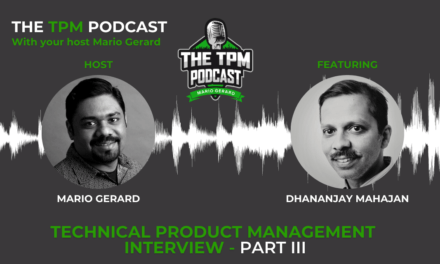
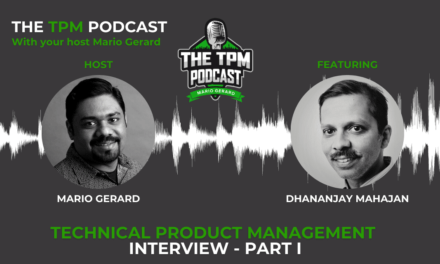
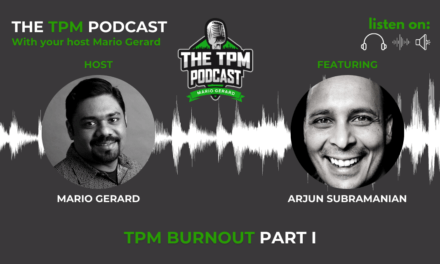


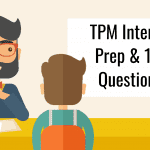
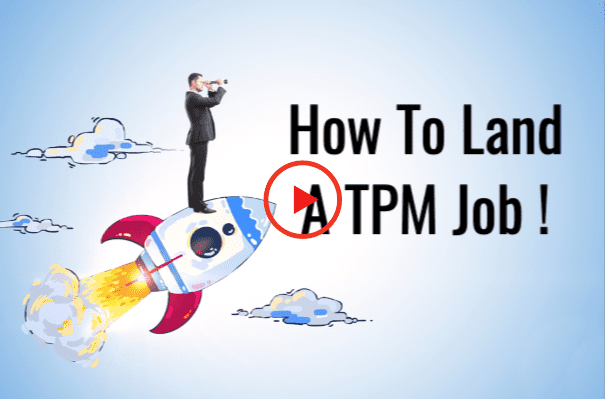


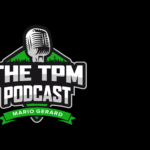
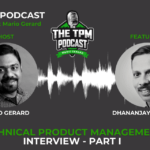

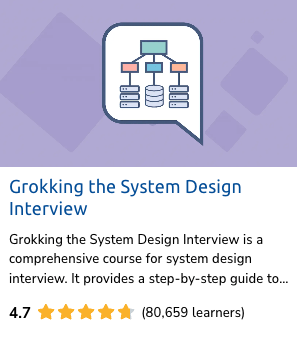

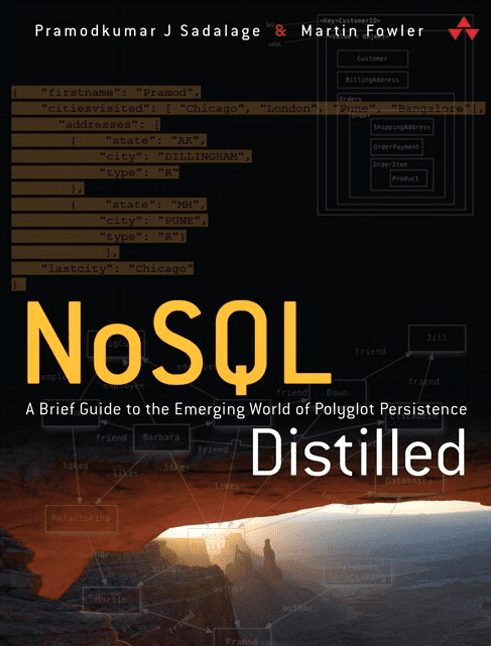
Very informative.
I have noticed you don’t monetize mariogerard.com, don’t waste your traffic,
you can earn extra cash every month with new monetization method.
This is the best adsense alternative for any type of website (they
approve all sites), for more details simply search in gooogle:
murgrabia’s tools
INSPIRATIONAL! Very informative and well organized.